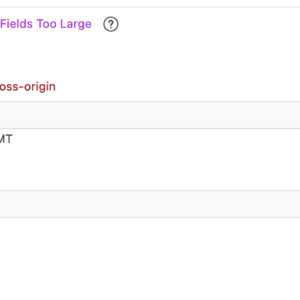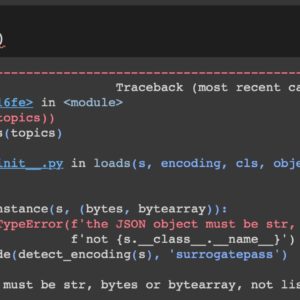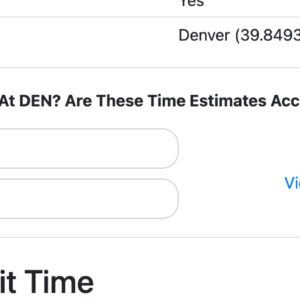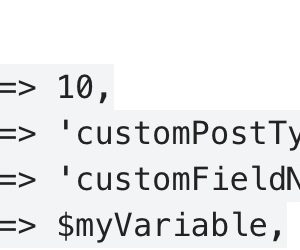Cloud Confusing
Explaining hosting, AWS, Wordpress, static sites, and all manner of cloud solutions.
How To Fix “”Make sure the value of Authorization header is formed correctly including the signature” Error
Are you seeing a message like, “Make Sure The Value of Authorization Header Is Formed…” and not sure what do to about it.
Sal April 6th, 2024
Posted In: Web Development
How To Fix A “Multiple URL Encoding Detected” Error
If you are faced with a “multiple URL encoding detected” or “multiple encoding detected” error, it can be somewhat confusing to troubleshoot, but this is a very fixable error. Let’s dig into to some likely causes and solutions.
Sal April 6th, 2024
Posted In: Web Development
Tags: WAF
How To Add Rel=nofollow, Rel=sponsored To Squarespace Links
If you are using Squarespace for your website or blog then you might be linking to affiliate partners from time to time. The current SEO guidance from Google is that monetized links like these carry either rel=nofollow or rel=sponsored tags in order to qualify these outbounds links as being of a commercial nature.
Unfortunately Squarespace doesn’t natively support rel=nofollow or rel=sponsored additions to an <a href= tag. So how do you fix this in order to save your site from a possible SEO penalty?
Sal February 25th, 2024
Posted In: Web Development
Tags: Squarespace
How To Fix A 431 Error

Are you getting a 431 error on a page that you suspect should be working properly? There is a good chance that it’s a local issue and it’s an easy fix.
Sal November 4th, 2022
Posted In: Web Development
“The JSON object must be str, bytes or bytearray, not list” Python Error Solved

If you are working with JSON in Python, then you might run into a common problem. You’ll know you have a problem because when running your Python you’ll get an output error that reads, “the JSON object must be str, bytes or bytearray, not list.” In common Python fashion, the message actually makes some sense but you’re still left trying to figure out what to do next.
Sal October 24th, 2022
Posted In: Python
WordPress Polls and Caching

As more sites move to advanced caching solutions, it’s getting more difficult to have dynamic content coming in through plugins and similar solutions. Recently I was experimenting with WP-Polls, a popular (free) WordPress polling plugin alongside CloudFlare (Automatic Platform Optimization).
Sal October 20th, 2022
Posted In: Wordpress
How To Add A Canonical Override For A WordPress Page With Parameters
Content management systems tend to ignore URL parameters, but sometimes you don’t want this to happen. Here is how you fix that with WordPress.
Sal September 21st, 2022
Posted In: Web Development, Wordpress
UN/LOCODE Function Code Parsing
The United Nations location code identifier system (UN/LOCODE) has an interesting system for noting the function of a specific location. Basically there is an 8-digit “classifier” which changes based on the function of the space. While logically interesting, it’ll require some custom work to parse this classifier and get written values from it.
Sal September 16th, 2022
Posted In: Web Development
Tags: Location Data
How To WP Query For Posts Type Names?
If you are writing a typical WordPress wp query you might not even mention the “post_type” filter, where you limit the post types returned in your query.
If you are looking for a specific post type, or possibly a custom post type, then you will use
'post_type' => 'yourCustomPostTypeName'in order to only get results from that custom post type (CPT).
But what if you want you want to run a query to get the names of the post types, not the posts themselves?
Sal December 31st, 2021
Posted In: Web Development
Tags: Wordpress
How To Fix: WordPress WP Query Returns Results When It Shouldn’t

If you are doing custom work on WordPress, you probably are using WP query. These is basically a database, essentially SQL, inside the WordPress template in order to deliver a highly customizable set of posts. With the ability to customize comes a bit of complexity.
One of the weird things that can happen is that a WP query that should yield no results will sometimes return many results. How do you fix this?
Sal December 31st, 2021
Posted In: Web Development